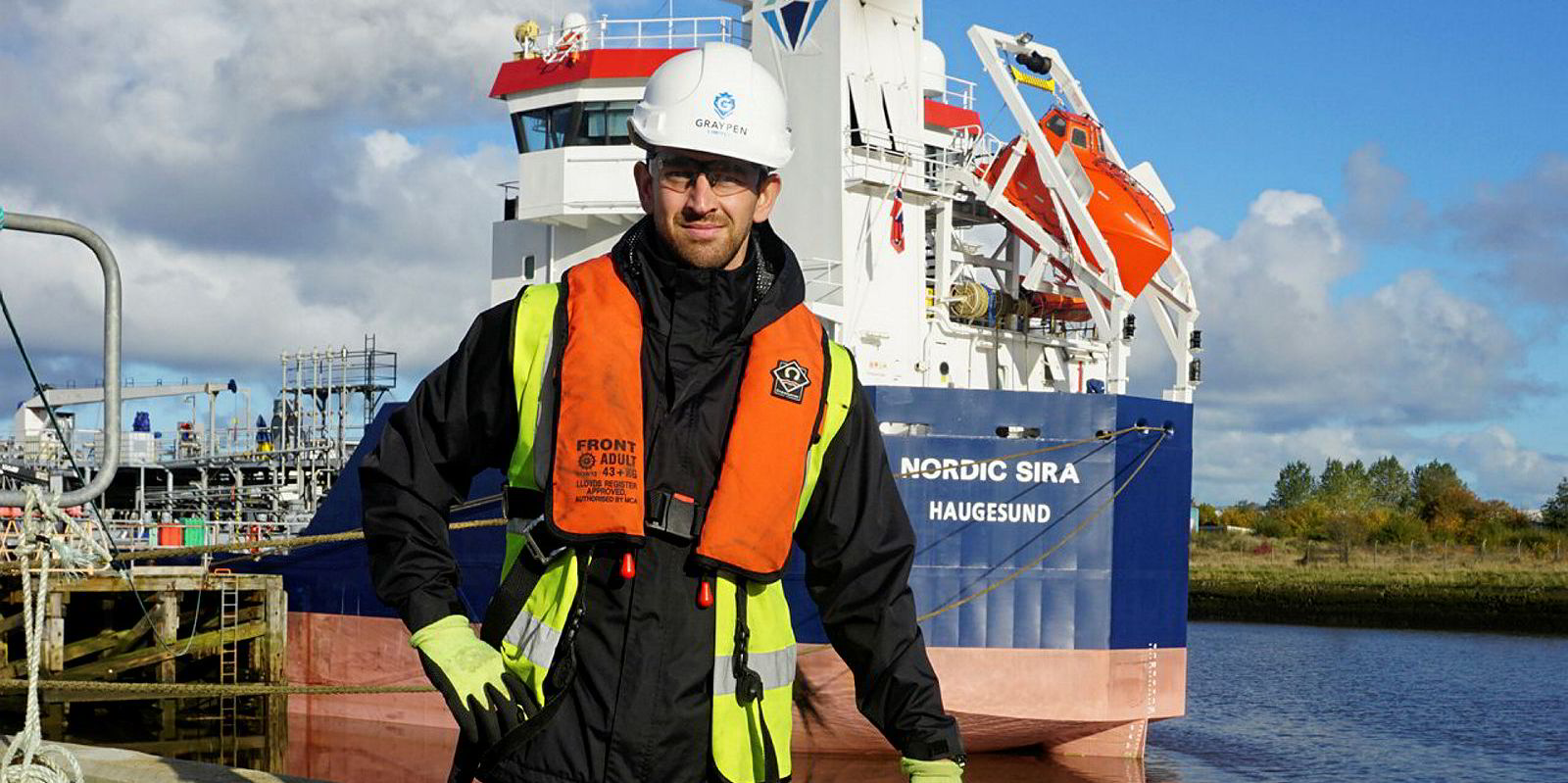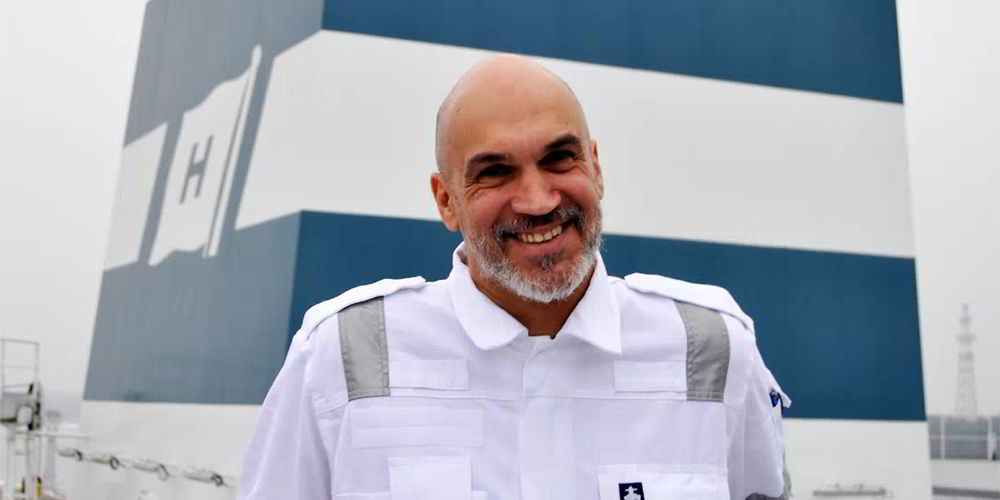Ships agent Joe Melvin loves his job, but it is not one he expected to be doing.
Finishing a sports studies degree nearly four years ago, Melvin started work in his father’s building company while he hunted around for a career with prospects — something he says can take up to a year in north-eastern England, where he lives.
A nudge from his ships agent brother Dan alerted him to a starter position in the same Graypen office in Teesport, and he signed up. “It was totally off the cuff,” Melvin says, admitting that he had no previous knowledge of the industry and had never seen a ship up close before. But “I loved it from day one.”
The 27-year-old is on the office’s boarding team, which goes onboard vessels on their arrival and departure in port to complete documentation. When TW+ meets him, Melvin has already prepped for two ship visits.
His organisational skills are evident from the array of perfectly lined-up highlighter pens ranged alongside his pin-neat documentation for the day’s work. But it is the out-and-about, ever-changing nature of the job that really appeals to him. “I’m not stuck in an office. It’s brilliant.”
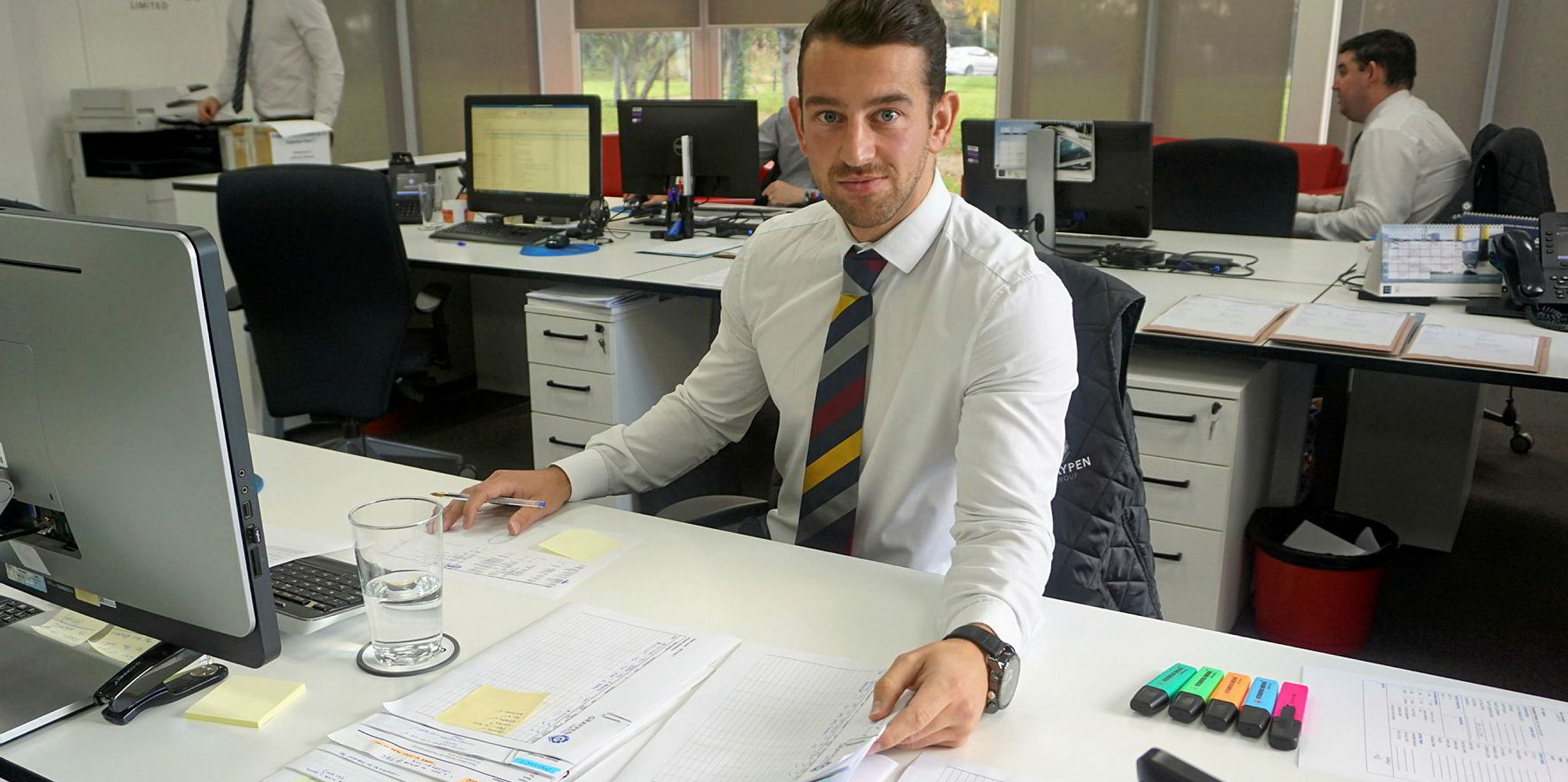
Melvin can see three to four ships a day, logging a record eight vessels on one shift.
Ships are usually tankers carrying chemicals, products or crude oil, although there have been some wind turbine blade deliveries by barge, and then there are the rather pungent bales of refuse-derived fuel.
There is also a lot of driving involved, shuttling between seven ports, some more than an hour’s drive away.
Good time management and the ability to get on with people are key, he says.
First up today is a visit to the soon-to-depart 4,054-dwt tanker Nordic Sira (built 2006), which has just completed discharging its cargo of acetone.
Melvin gets down to work with the chief officer, signing and stamping paperwork and noting the array of times required.
For ships arriving, this can include the end of sea passage, pilot boarding and when notice was sent that the ship was ready to discharge.
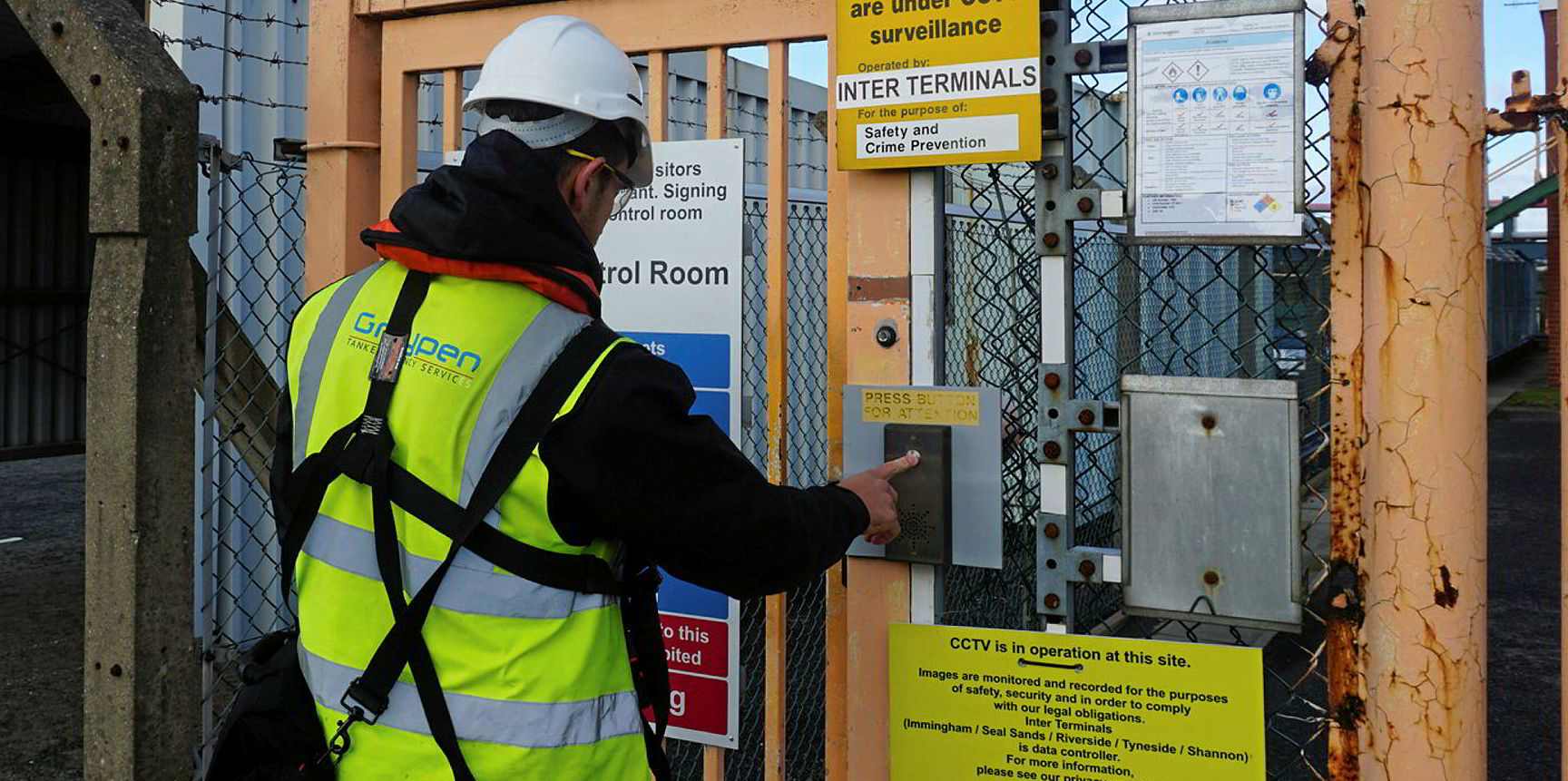
Ship agency has its own language and Melvin peppers his description of the day’s activities with terms such as “statement of fact”, “prospects” and “protests”.
The documentation and paper stamping take a matter of minutes. “The ship usually knows what the agent needs and is ready for us,” he says.
Captain Thor Holter shows up. He has been at sea since he turned 16 in 1966 and points out that the berth the ship is moored to is older than his and TW+’s combined ages (cheeky), suggesting a new one is required.
A replacement captain is also on the bridge awaiting his taxi — booked by Melvin — as he leaves the ship. He has been onboard to help Holter, who experienced eye problems.
Melvin has not had to deal with this particular medical emergency, but it can be part of the job.
He recalls a Russian seafarer who was accidentally splashed with propane as his ship was preparing to depart Grangemouth, south-eastern Scotland. On arrival at Teesport, his hand had turned yellow and swelled up.
Melvin and the team arranged for the man to be taken to hospital and found specialists to treat him.
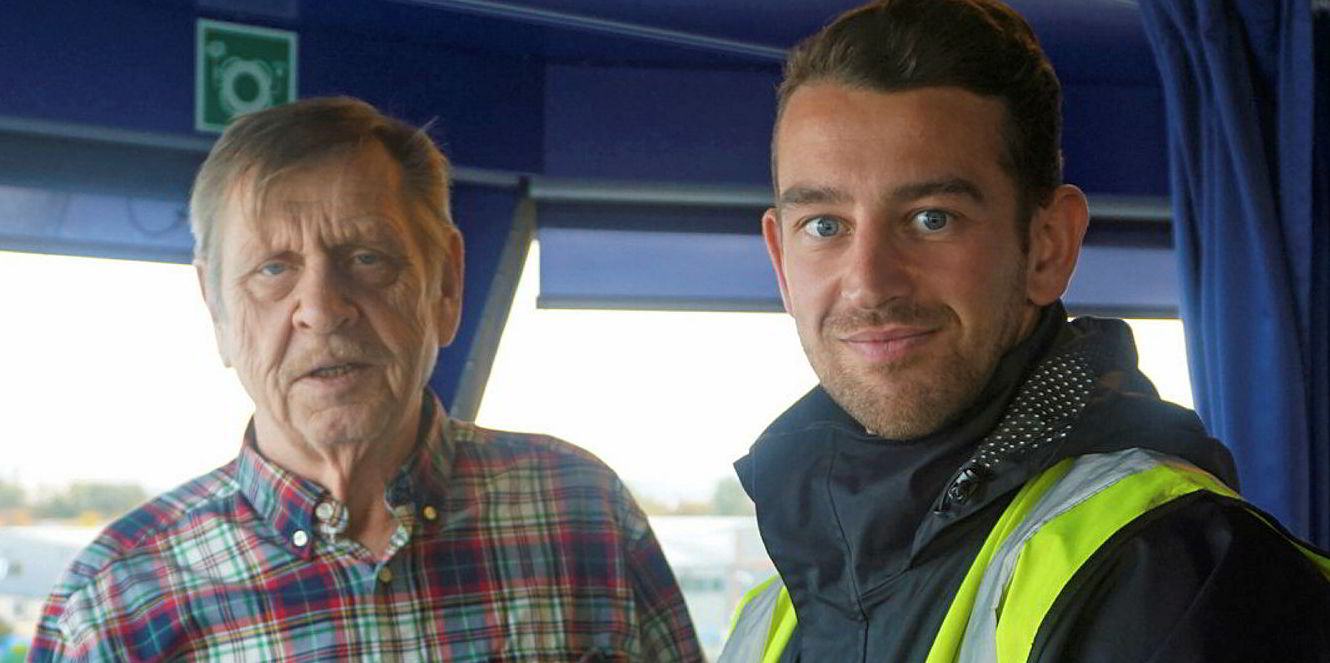
Colleagues recall more serious cases of a spinal injury that required coastguard and helicopter assistance, and of a death, with all the complications, paperwork and emotions this brings.
Returning to the office, Melvin sends the details he has gathered to all parties concerned, including the ship’s owners and charterers and the receiver of the cargo.
When the vessel is ready to leave, more times need to be recorded and the ship is booked out to sail, with Graypen calling the harbour office to arrange pilots, boatmen and tugs. Delays can be a problem as ships wait for port services or traffic to clear on the River Tees.
This afternoon’s vessel, the 3,050-dwt Mozart (built 2000), has arrived with a cargo of benzene that it will discharge in around 10 hours before heading back to Brunsbuttel in Germany.
There is the paperwork to be done and a cash handover — a rare sight these days — for the crew’s mobile phone top-ups, which Melvin arranged the previous day.
Graypen is celebrating its 50th anniversary in 2019. It has remained an independent UK ship agency, and today employs about 115 people in nine bases around the country and in Rotterdam, Amsterdam and Antwerp. Graypen says its independence has allowed it to be flexible and respond quickly to changing industry needs. “If the larger [agency] corporations are like a VLCC and slow to move, then the independents are more agile, like an MR1 or handy vessel,” general manager Lee Etherington says.
Captain Jacek Moniak is all smiles as he hands over to his replacement, Captain Daniel Jarek, and prepares to head off to Spain on five weeks’ leave — it should be eight, but this way he’ll be back in time for Christmas.
The departing master wants to check on his taxi arrival and teases that he hopes it’s a Jaguar. “This is the minimum for the captain,” one of his officers jokes.
There is a chance Moniak and Melvin will meet again over the festive break, as the young agent has signed up to work through the Christmas holiday.
Fitness-conscious Melvin, who plays semi-professional football at regional level and captains the port users’ cricket team for its annual match against PD Ports, does not mind being on call over the holiday or the night shift that he works one week in three.
Back in the office, the team have been discussing ship agency and how it might change.
Some ships do not require an agent’s visit now, and at one end of the spectrum it could become a simple electronic exchange of documentation.
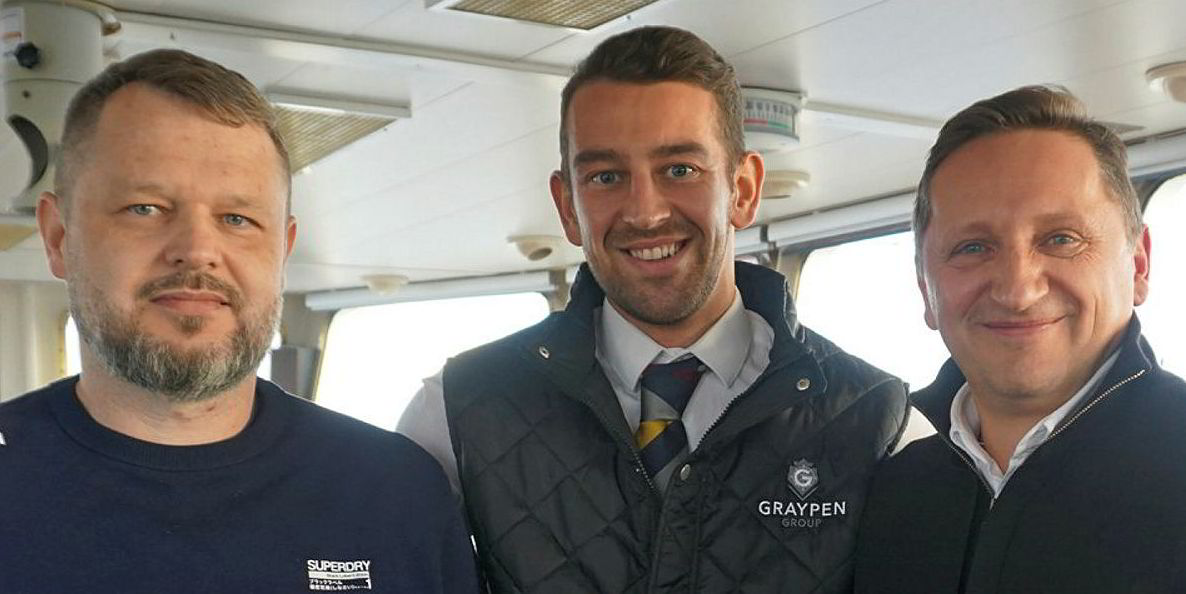
But at the other end, it is busy. There is husbandry, encompassing all the things that the agent does for the vessel and its crew, such as arranging doctor and dentist visits, trips to the seamen’s mission, shopping expeditions and restaurant recommendations.
Some owners are keen to see photos of dry cargo loading and discharging operations.
Then there are the orders from the chandlers that a ship’s master makes and the owner pays for, all via the agent. Melvin’s most unusual request yet? A new mattress.
Spare parts are a little more complex, requiring customs clearance, and might be ordered by the owner weeks ahead of the ship’s arrival, with Melvin and the Graypen team handling the customs arrangements and getting them to the vessel.
With crew, Melvin must arrange immigration paperwork for those joining and leaving vessels.
His colleagues also recall some of the more hands-on situations they have dealt with, including being called in the early hours of the morning to break up a fight between crew members returning from a trip ashore.
Then there is Brexit. Some of the team have attended seminars aimed at informing them. They believe it is important to stay engaged, but admit they still have little idea how it will affect their work.
